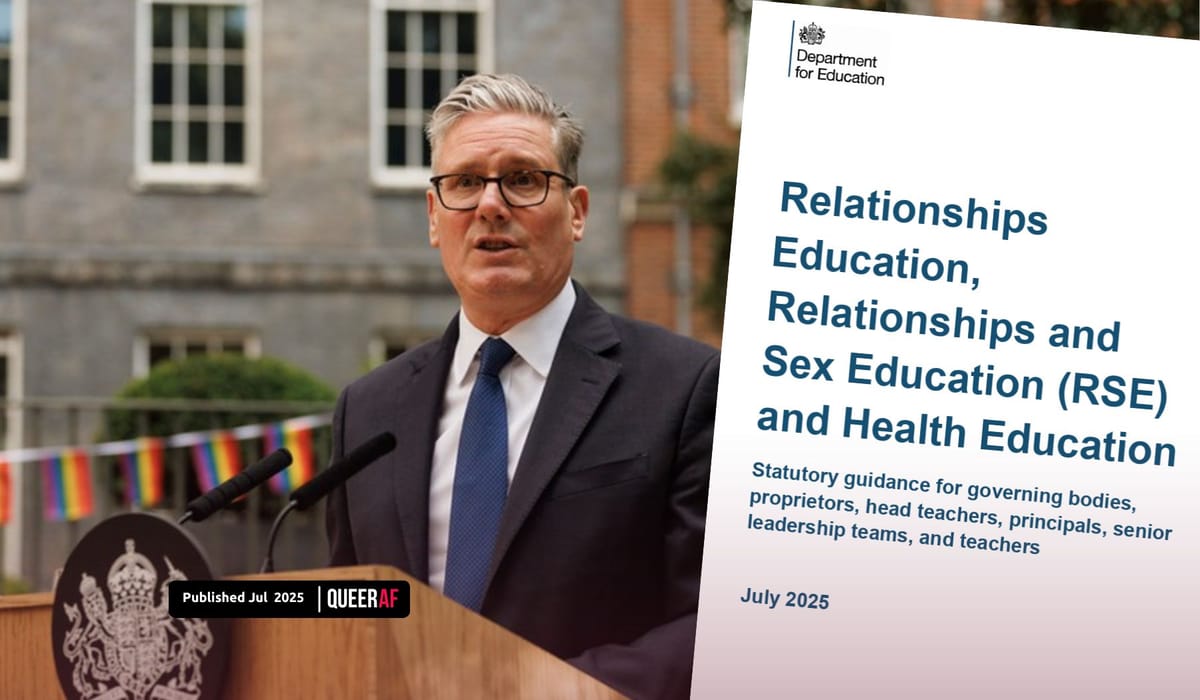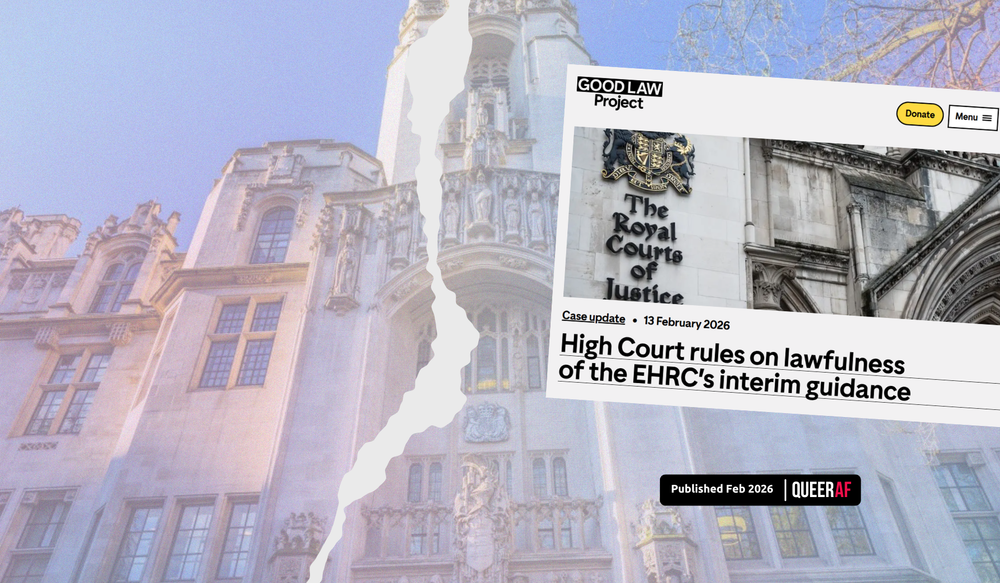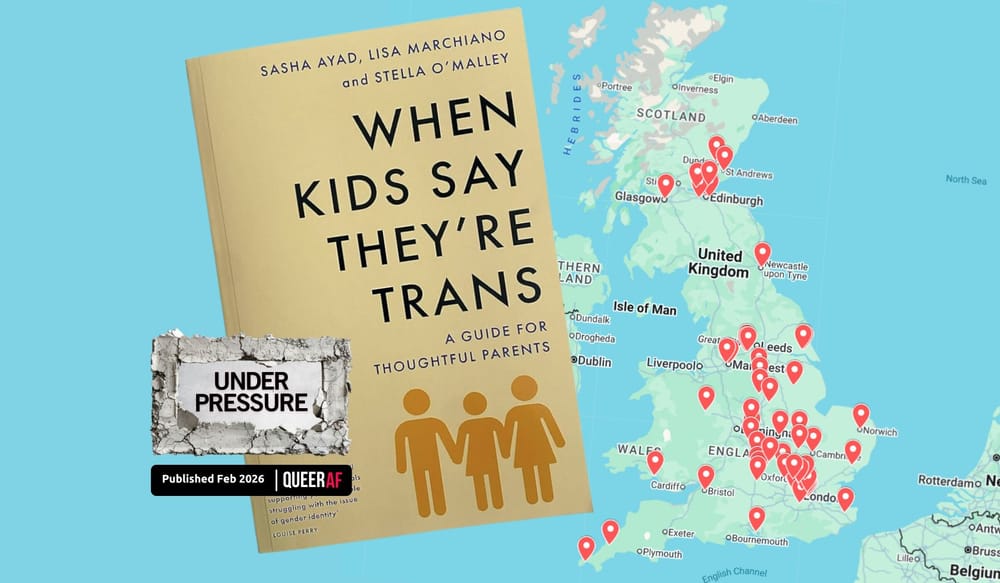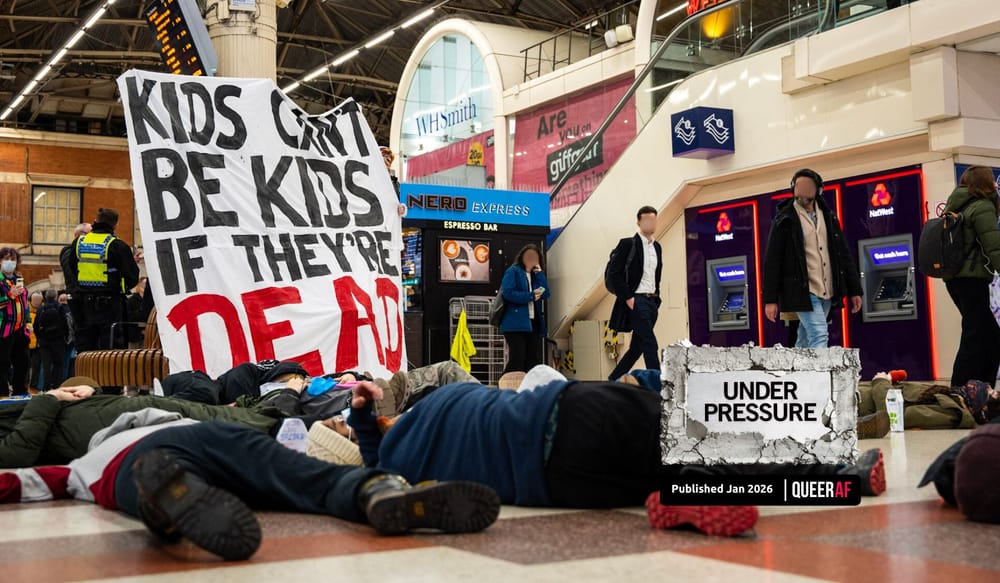TL;DR: Exclusive: An FOI seen by QueerAF shows that four explicitly anti-trans organisations were included in a consultation that led to RSE guidance that will introduce what has been widely described as a 'Section 28 2.0'. The statutory guidance will ban schools from from using materials that "encourage pupils to question their gender". It also makes it compulsory to teach children the laws about 'biological sex' and adopts a number of other gender-critical perspectives.
Four explicitly anti-transgender groups were featured in the consultation on new statutory sex education guidance, which has been criticised for taking a "trans exclusionary" approach that frames Trans+ people's lives as a debate, an FOI shared with QueerAF reveals.
Groups including Sex Matters, the Safe Schools Alliance, Transgender Trend and the Bayswater Support Group of parents who advocate for abusing trans children, were all invited to contribute to the consultation.
The only specifically Trans+ group that was consulted was activist group Trans Kids Deserve Better, but the consultation also received submissions from LGBTQIA+ groups including Stonewall, Galop, Kite Trust and the LGBT Foundation.
However, in the Department for Education's response to questions about how and who contributed to creating the definitions of 'biological sex,' 'gender reassignment,' and 'gender identity,' the response was that the latter is a "belief".
"Gender identity is the belief that a person can have a ‘gender’, whether male (or ‘man’), female (or ‘woman’), or ‘other’, that is different to their biological sex. The guidance references the view that everyone has a gender identity as an example of something that is contested” - Response from Department of Education to FOI seen by QueerAF
Alex Gladstone, who shared the FOI with QueerAF, said they were surprised by how "open" the response was in "revealing the department’s clear agenda and hostility towards transgender, non-binary and intersex people."
Vesper, from activist group Trans Kids Deserve Better, told QueerAF that this was the case when the group was consulted too. The draft guidance “demonised being trans and pictured it as a social contagion” Vesper told us.
They added that while the group did feel listened to by the process, “it was still clear that they valued other viewpoints (specifically transphobic viewpoints) above ours."
What does new relationships and sex education guidance for England say about Trans+ people?
It states that schools must avoid using material that "encourages pupils to question their gender", and adopts a number of other gender-critical perspectives into the curriculum. Specifically, it tells schools not to teach that "everyone has a gender identity", and that they must avoid saying social transition is a "simple solution to feelings of distress or discomfort".
The guidance also sets out that schools should teach what laws apply to the gender-critical dog whistle 'biological sex' - a term which still doesn't have a specific legal definition despite it being the basis of this year’s ruling from the Supreme Court on the definition of a woman in the Equality Act 2010.
Meanwhile, all references to transgender people instead refer to "gender questioning" people, or the protected characteristic of "gender reassignment". The word ‘transgender’ is only used in the title of the LGBT section, and is not found anywhere else in the document - QueerAF

Analysis: Who the government is listening to matters
This isn't the first time such an explicit list of anti-trans groups has been included in a government consultation which has ultimately led to a policy that will detrimentally harm the Trans+ community.
Recently, eight explicitly anti-transgender groups were featured in the targeted consultation that saw Wes Streeting, the UK Health Secretary, announce an indefinite ban on the use of puberty blockers for young trans people - QueerAF
Most worryingly, both consultations spoke to the Bayswater Parents group, who have been shown to brag about the harm they inflict on children. We asked the Department of Education whether they were aware of these allegations before they invited them to be part of the consultation, and whether the Minister regretted their inclusion now that they've learned of this information.
A government spokesperson did not respond to this question, but said the Department engaged with a wide range of organisations representing different views and the inclusion of an organisation in that process "does not constitute an endorsement of any of those organisations."
Of course, endorsement or not, it matters who is being listened to on these subjects, even if, in this instance, there appears to have been an attempt at 'balancing' the groups heard from.
There was an equal amount of LGBTQIA+ trans inclusive organisations, as there were anti-trans respondents. Of course, balancing the numbers isn’t everything - it’s the same trap the BBC often falls into. It creates a false sense of balance, when views don't match up with facts.
This is a problem that most media and politicians have recently learned to overcome in a different field: climate change.
There is overwhelming evidence of its effects, its reality and the harm it is doing to all of us and the world.
As a result, climate denialism is given much less airtime now than it used to be, and it’s become a BBC editorial policy, not to air them.
Trans+ people's lives can be traced back a millenia, and the more we communicate and bring those facts to people, the quicker we can affirm the reality of Trans+ lives, and shut down the ‘debate’.

To beat misinformation we need a well resourced queer led newsroom that can cut through the noise and get to the facts.
Our publisher is small, but mighty, and that's because of some key principles in the way we produce news for you:
- This newsletter always has been, and always will be, free of adverts. That keeps us focused on what counts, not what drives clicks
- Readers and members drive our news agenda, because that's what our community deserves: news told both by and for us
- Investing in a new generation of queer journalists, and packing the media full of us, is the best way to address the issue in the sector. Meanwhile, we'll model the change we want to see and prove it's possible to do justice to our community's stories
Journalism is an expensive craft. It takes all week to put together this newsletter, so you can catch up on the queer world in five minutes. And we do that alongside mentoring creatives and lobbying the media sector.
If you believe in our unique model and the change we're bringing to the queer news sector, please upgrade today if you can - and help us continue to grow.
Help us change the media, so we can change the country.












